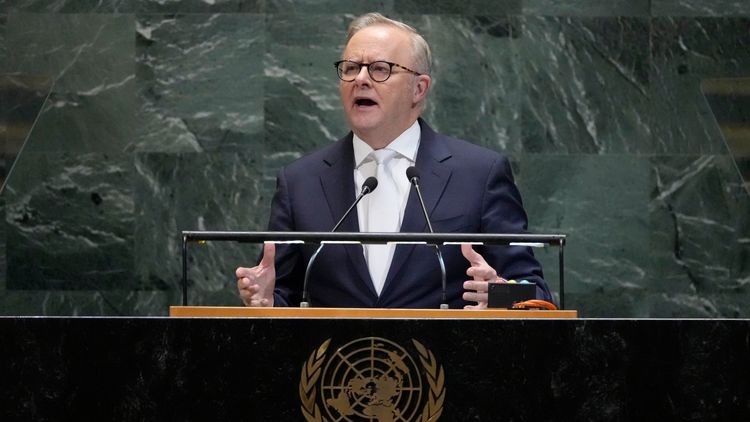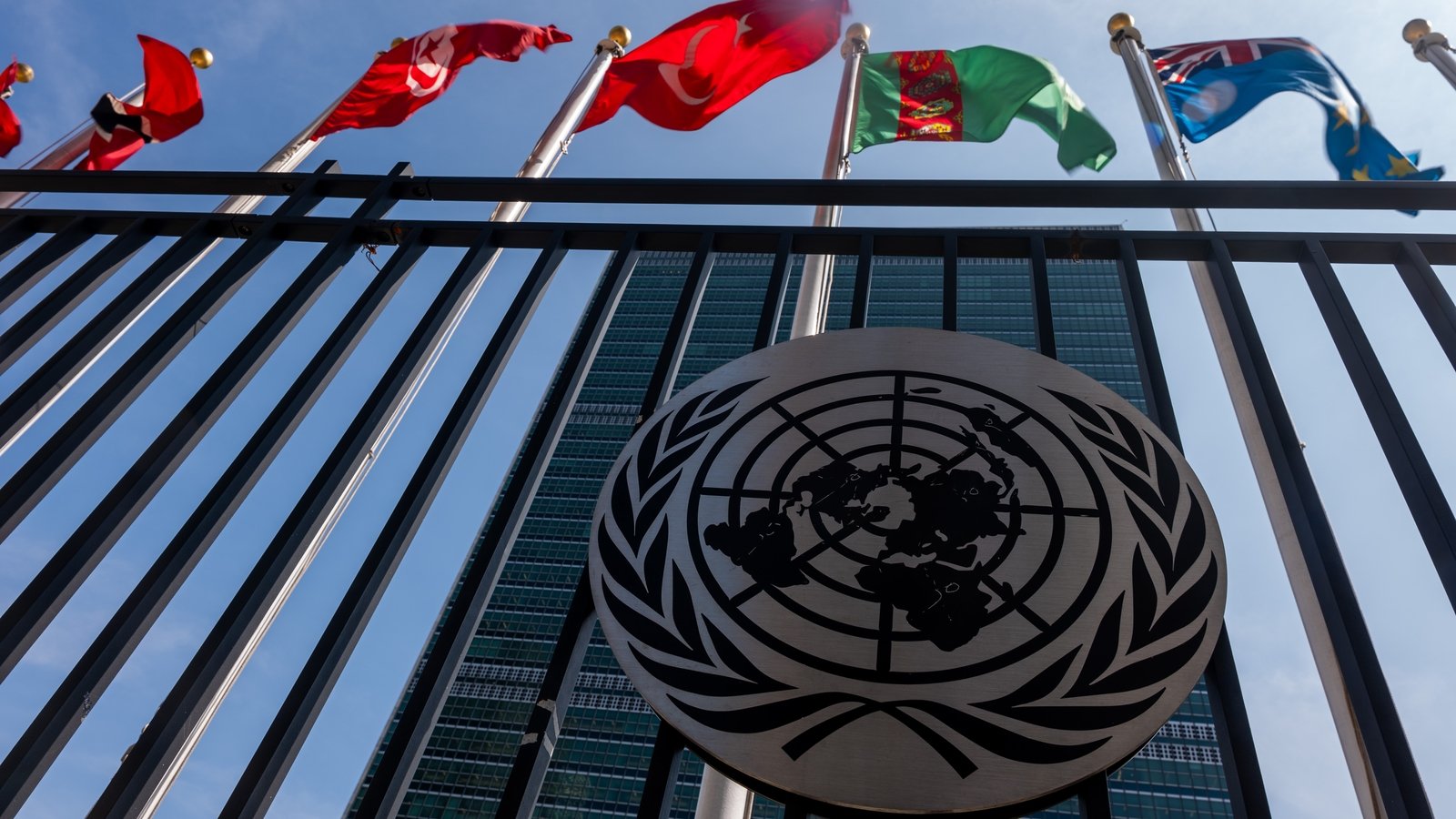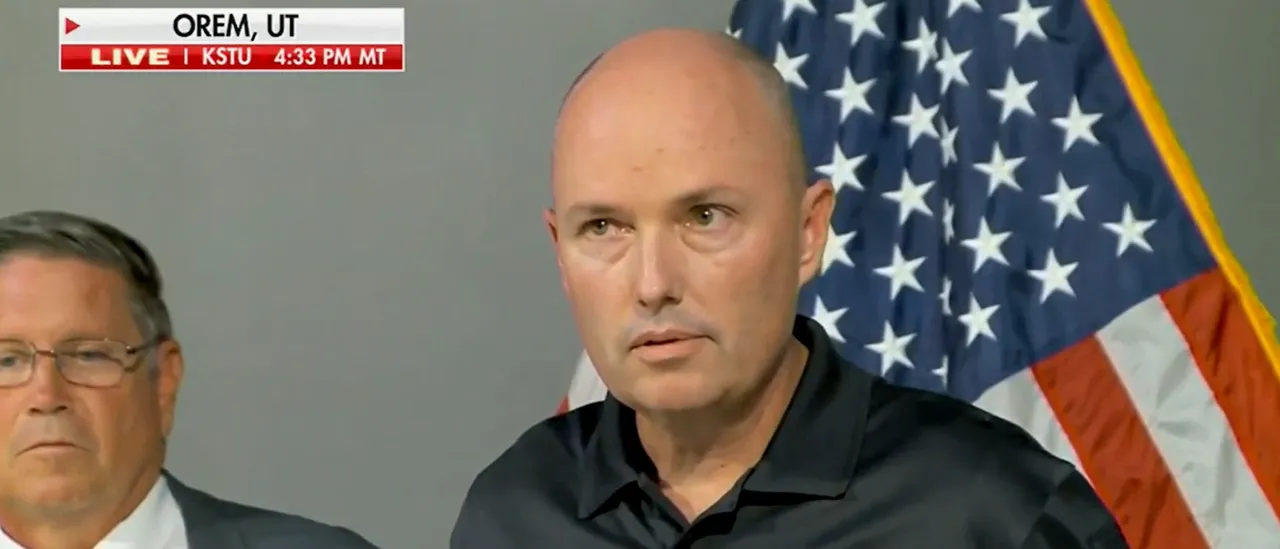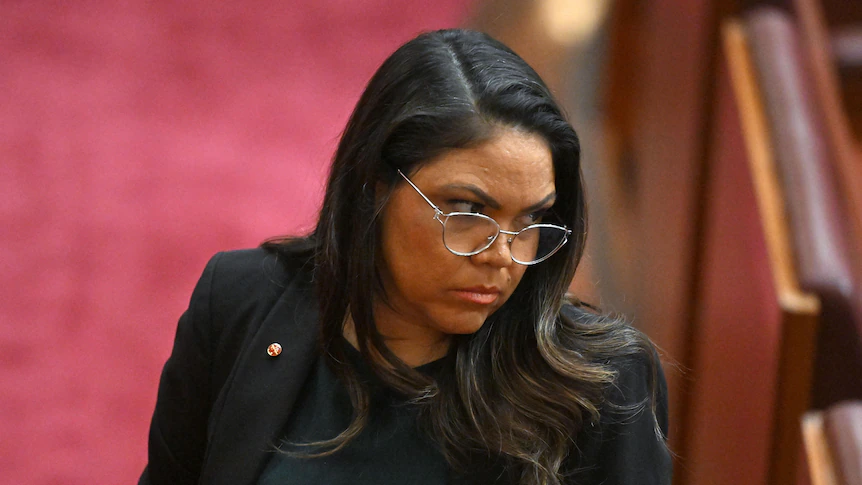By 9News,Adam Vidler
Copyright 9news

Australian Prime Minister Anthony Albanese has underscored multiple divergences from the current US administration in an address to the United Nations that emphasised the value of diplomacy and global cooperation.
In a wide-ranging speech that touched on topics including climate change, the recognition of a Palestinian state, Australia’s expulsion of Iranian ambassadors, and more, Albanese warned the world risked being ruled by dictators and war, as he called for the UN to reform how it operated.
You can read the full text of the speech below.
READ MORE: UN says Trump team to blame for escalator shutdown
“The creation of the international rules-based order owes much to the post-war leadership of the United States of America,” Albanese said.
“For the region Australia calls home, that stability has underpinned a generational economic transformation.
”But we cannot ask – and should not expect – any one nation to uphold the rules or guarantee the security on which all of us depend.
“We all have a role to play in making sure that the system which has enabled the rise of new powers, safeguards the rights and aspirations of every nation big and small.”
READ MORE: Controversial Trump and Epstein statue torn down one day after it appeared
Albanese took to the podium just hours after sharing a selfie taken with a beaming US President Donald Trump, who yesterday castigated the UN with a bellicose speech in which he warned against immigration and described climate change as a “con job”.
Trump also blasted the UN as an ineffective body failing to live up to its “tremendous potential”.
“At least for now, all they seem to do is write a really strongly worded letter and then never follow that letter up,” he said.
READ MORE: Millions of Aussies facing ‘financial chaos’
“It’s empty words, and empty words don’t solve war. The only thing that solves war and wars is action.”
In contrast, Albanese emphasised the importance of the United Nations as a venue for all the world’s countries to have a voice.
“The United Nations is much more than an arena for the great powers to veto each other’s ambitions,” he said.
“This is a platform for middle powers and small nations to voice – and achieve – our aspirations.”
And he said there were no winners if the UN decided to “step back”.
“If we give people reason to doubt the value of co-operation, then the risk of conflict becoming the default option grows,” he said.
“We risk a world where dialogue and diplomacy are viewed as a dead end, rather than the vital road to understanding.
“And where people beset by conflict, poverty or inequality come to look on this Assembly as little more than a final resting place for good intentions.”
Anthony Albanese’s full speech to the UN General Assembly
Eighty years ago, the people of our nations came together and put their trust in each other’s humanity.
An act of faith all the more extraordinary when we recall the devastation that still gripped their world.
Yet out of the grief and ruin of war, that generation found the courage, the wisdom and the compassion to work together for a better peace.
To build a world governed by rights and rules, not fear or force.
Where the sovereignty of every nation is respected.
The essential dignity and equality of every man, woman and child upheld.
And where the shared mission and purpose of the United Nations is not merely to contain the threat of war, it is to create the conditions for peace.
To provide a framework for settling our disputes.
To foster the dialogue that enables us to manage our differences, and deepen our understanding.
And to nourish the opportunity, build the prosperity and deliver the economic justice on which true and enduring security always depends.
If, 80 years ago, this task had been entrusted to the great powers alone, then in all likelihood we would not be gathering here today.
Instead, history would note the United Nations as little more than a noble experiment.
The reason this institution has endured is because it belongs to all of us.
Because it has been built and shaped by all of us.
And it is up to all of us to bring new strength to the United Nations’ enduring mission.
To renew our commitment to the principle that peace is both our common cause and our collective responsibility.
The creation of the international rules-based order owes much to the post-war leadership of the United States of America.
For the region Australia calls home, that stability has underpinned a generational economic transformation.
But we cannot ask – and should not expect – anyone nation to uphold the rules or guarantee the security on which all of us depend.
We all have a role to play in making sure that the system which has enabled the rise of new powers, safeguards the rights and aspirations of every nation big and small.
For Australia, this means investing in our capabilities and investing in our relationships.
Investing in development, in defence and in diplomacy.
To strengthen the security of our region, to support the sovereignty of our neighbours and to contribute to the cause of peace beyond the Indo-Pacific.
We promote unity in the Pacific Islands Forum.
We are deepening our engagement with ASEAN, and elevating our partnerships with Indonesia, India, the Republic of Korea and Japan.
And we are breaking new ground with old friends: in the United Kingdom, the European Union and our principal ally, the United States.
Because we see mutual understanding, shared prosperity and economic co-operation as the most powerful counterpoints to confrontation, isolation or conflict.
Wars are often started by countries who imagine there is something to gain.
The more we can do to reinforce the architecture of peace and prosperity, the more we remind nations of everything they stand to lose.
Colleagues, whenever a head of government speaks to this Assembly about prosperity or security, they will always be met with calls for that work to begin at home.
Part of our job is demonstrating to the people we serve that what happens in the world, matters to them.
That when we co-operate to enhance security, contribute to alleviating poverty or commit to protecting the environment …when we support the agency of forums such as the G20, or APEC or invest in diplomatic partnerships like The Quad… none of this means setting our national interests or our people’s values aside, it means working to fulfil them.
The United Nations is much more than an arena for the great powers to veto each other’s ambitions.
This is a platform for middle powers and small nations to voice – and achieve – our aspirations.
That is why Australia is seeking a place on the UN Security Council in 2029-30.
And it is why we are bidding to co-host the 31st Conference of the Parties, with our Pacific family nations for whom climate change is more than an environmental challenge, it is an existential threat.
This is a place for the global spotlight to shine on suffering and struggles that might otherwise be forgotten.
And for the international community to work together, to advance our shared interests – and to tackle challenges we cannot meet alone.
In 2025, we are confronted by all manner of these challenges in old forms and new.
Dictators whose hold on power derives solely from their capacity for cruelty to their own citizens.
Tyrants who invade sovereign nations to further their own ambitions.
Regimes willing to crush their own people beneath the weight of oppression.
Autocracies deploying new technology to undermine our trust in democracy, institutions and each other.
Intimidation and coercion on the seas and in the skies, endangering lives and risking escalation.
Terrorists – and states which sponsor terrorism – spreading hatred.
And if ever we had the luxury of imagining that breaches of international law were not our concern…or that conflict and turmoil in another part of the world could not affect us, those days are long gone.
Just last month, Australian security agencies confirmed that the Iranian regime orchestrated the firebombing of a synagogue in Melbourne and a Jewish restaurant in Sydney.
Criminal acts of cowardice, aimed at spreading fear.
We expelled the Iranian Ambassador from Australia.
The first time since the Second World War our country has taken such a step.
And here at the United Nations we repeat to the world, there is no place for antisemitism.
Colleagues it is not the Australian way to try and impose our values on other nations.
But when we deal with the world, we bring our values with us.
And we strive to back our words with actions.
Australia helped to draft the United Nations charter.
And we were part of the first peacekeeping operation under UN authority, supporting independence for Indonesia.
As an economy engaged in the fastest-growing region of the world in human history,
Australia champions the benefits of free and fair trade.
And we work to strengthen it.
By advocating for working people to share in the prosperity trade creates: through better wages, safer workplaces and the elimination of exploitation and modern slavery.
And by supporting the security of communications and maritime travel that makes trade possible, through the United Nations Convention on the Law of the Sea, including in our region and the South China Sea.
And as a proud member of the Pacific Family…as a continent home to some of the greatest natural treasures on the planet…and as a nation blessed with the traditional resources, critical minerals, skills and sunlight and space to power the global shift to net zero, Australia is acting to meet the environmental challenge of climate change while working to seize and share the economic opportunities of renewable energy.
We will meet our 2030 target of 43 per cent emissions reduction on 2005 levels.
And last week we set our target for 2035: cutting emissions by 62 to 70 per cent.
We are honouring our commitment to the Paris Agreement and its goal of keeping global temperatures below dangerous levels.
Our target is ambitious – importantly it is achievable.
And more than anything else, Australia’s embrace of clean energy will get us there.
Clean energy can carry the world beyond the false choice between economic growth and environmental responsibility.
Because clean energy enables the rapidly growing economies of the Indo-Pacific to industrialise and decarbonise at the same time.
And to continue lifting their people’s living standards while lowering their nation’s emissions.
Colleagues, as one of the world’s oldest democracies – and one of the first where women could vote in elections and stand for Parliament… Australia knows societies and economies are stronger when they draw on the talents of all their citizens.
Indeed, it was an Australian, Jessie Street, one of just eight women among the 850 delegates in San Francisco in 1945 who insisted that the UN Charter make specific mention of sexual discrimination.
Because, she said: “Where the rules are silent, women are not usually considered.”
That is why Australia proudly works to promote education, economic opportunity and empowerment for women and girls around the world.
As the home of the world’s oldest continuous culture, we honour the knowledge and resilience of Indigenous people everywhere.
And as a country strengthened and enriched by the hard work and aspiration of people drawn from every faith and tradition on earth…we stand against discrimination and prejudice, everywhere.
As a people who believe that kindness is an act of courage, we want to see aid workers delivering food, water and medicine to conflict zones, protected.
This week, Australia and our partners launched the Declaration for the Protection of Humanitarian personnel.
I thank the more than 100 nations that have already endorsed the declaration.
And as a nation that knows security depends on sovereignty, Australia stands with the courageous people of Ukraine in their struggle against Russia’s illegal and immoral invasion.
We share the resolve of every member of the ‘Coalition of the Willing’ to secure peace on Ukraine’s terms.
It is the nature of the world the United Nations serves, that this institution is constantly tested.
In times of global uncertainty, there are no easy days.
But there are clear choices.
If the United Nations steps back, we all lose ground.
If we give people reason to doubt the value of co-operation, then the risk of conflict becoming the default option grows.
If we allow any nation to imagine itself outside the rules, or above them, then the sovereignty of every nation is eroded.
If we resign ourselves to the idea that war is inevitable, or relegate ourselves to the status of disinterested bystanders…if our only response to every crisis is to insist that there is nothing we can do…then we risk being trusted with nothing.
We risk a world where dialogue and diplomacy are viewed as a dead end, rather than the vital road to understanding.
Where co-operation to meet new challenges facing humanity, yields to old differences of race or faith or ethnicity.
And where people beset by conflict, poverty or inequality come to look on this Assembly as little more than a final resting place for good intentions.
All of us proud to belong to this institution, understand this is not the case.
But knowing that, or saying it, is not enough – we have to prove it.
Not by pointing to longevity, or appealing to history.
But by reforming the United Nations so that it can serve us better in the present.
And by working together to shape the future.
Because while eighty years is a significant milestone, the true value of the United Nations is not counted in decades, it is measured in deeds.
In actions that make a positive difference to people’s lives.
That is how the UN proves its worth – and makes its case:
By delivering food to villages in the grip of famine.
By providing vaccines that spare families from disease.
By bringing clean water to a community on the brink.
By helping countries break the shackles of poverty.
By liberating children from exploitation or abuse.
By guarding against the spread of nuclear weapons – and working for a world free of nuclear weapons.
By demonstrating that the principles on which the United Nations was founded still hold life and weight and meaning and hope for the people who need them most.
And nowhere is that task more urgent than the Middle East.
For decades, leaders have come to this podium in search of new words and new ways
to call the world to action on a two-state solution.
Today, I look to words that Australia helped write, 80 years ago.
Australia is calling for a ceasefire.
For the immediate release of the hostages.
For aid to flow to those in desperate need.
And for the terrorists of Hamas to have no role in Gaza’s future.
And – this week – Australia recognised the State of Palestine.
Because, to quote from the Charter that forms the very foundations of this institution and reflects the very best of its idealism.
We are determined:
“To save succeeding generations from the scourge of war…
To reaffirm faith in fundamental human rights…
To promote social progress and better standards of life in larger freedom.
And for these ends: to practice tolerance and live together in peace with one another as good neighbours.”
Every nation that takes a seat in this room has put its name to those principles.
Peacekeepers and aid workers from all over the world have risked and lost their lives in the service of those ideals.
So we must ask ourselves: when can those words hold meaning, if not now?
Where can those words apply, if they do not apply to the Middle East?
And what can we, the members of the United Nations say we stand for, if we cannot say we stand for this.
There is a moment of opportunity here – let us seize it.
Colleagues, in the early days of this Assembly, Papua New Guinea was considered an Australian territory.
Last week, that proud nation celebrated the 50th anniversary of its independence.
And soon, Australia’s nearest neighbour will become our newest ally.
Times change, nations and regions change with them.
But the ideals and imperatives that built this place are timeless.
More than ever, we must trust in each other’s humanity.
More than ever, we must choose to succeed together rather than risk failing alone.
More than ever, we must work to see the promises of this place deliver real progress for the people we serve.
More than ever, we must work to build a future true to the United Nations’ noble purpose and worthy of our people’s greatest qualities.
We all have a part to play – and Australia, just as we always have – will always play our part.
DOWNLOAD THE 9NEWS APP: Stay across all the latest in breaking news, sport, politics and the weather via our news app and get notifications sent straight to your smartphone. Available on the Apple App Store and Google Play.



